The secret hero of home safety is the humble leak detector
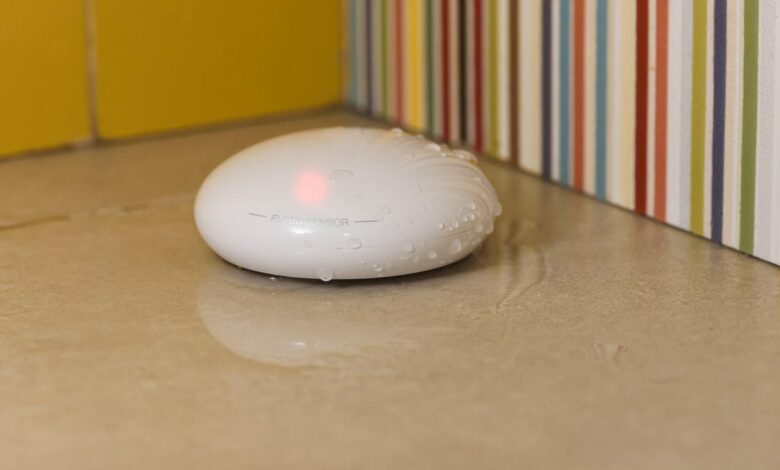
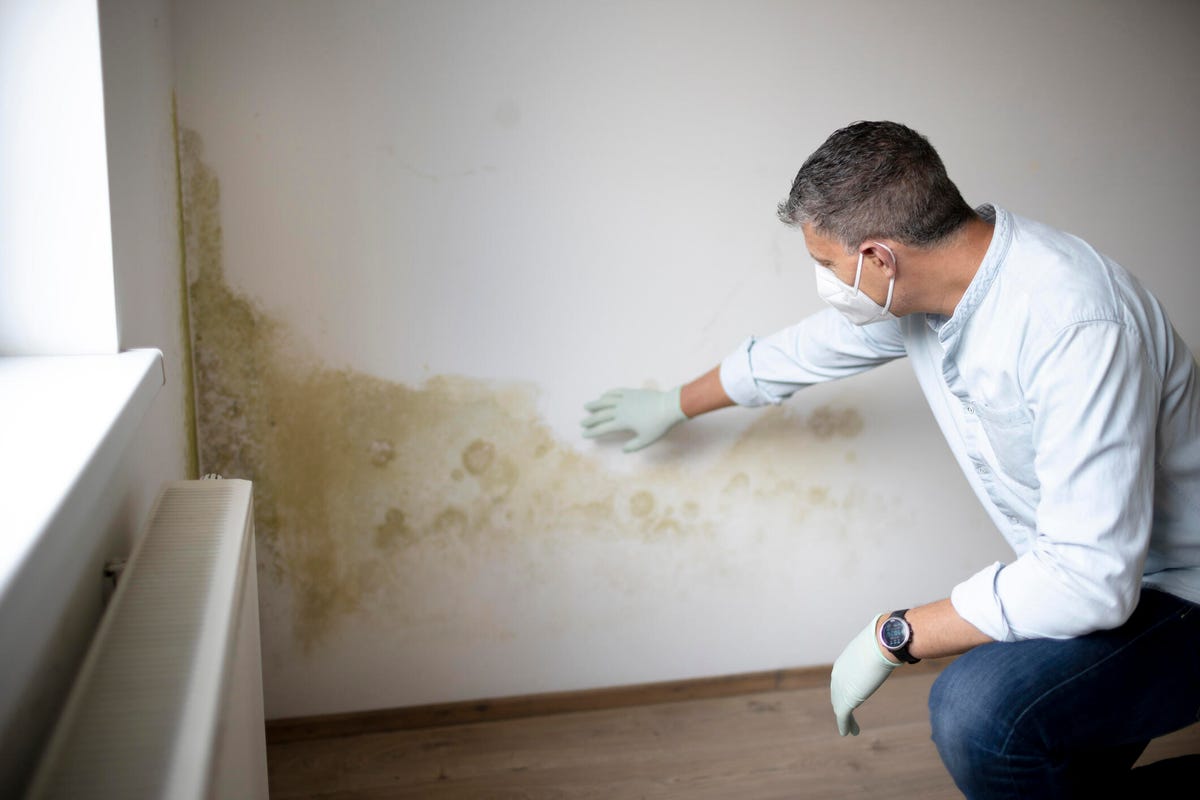
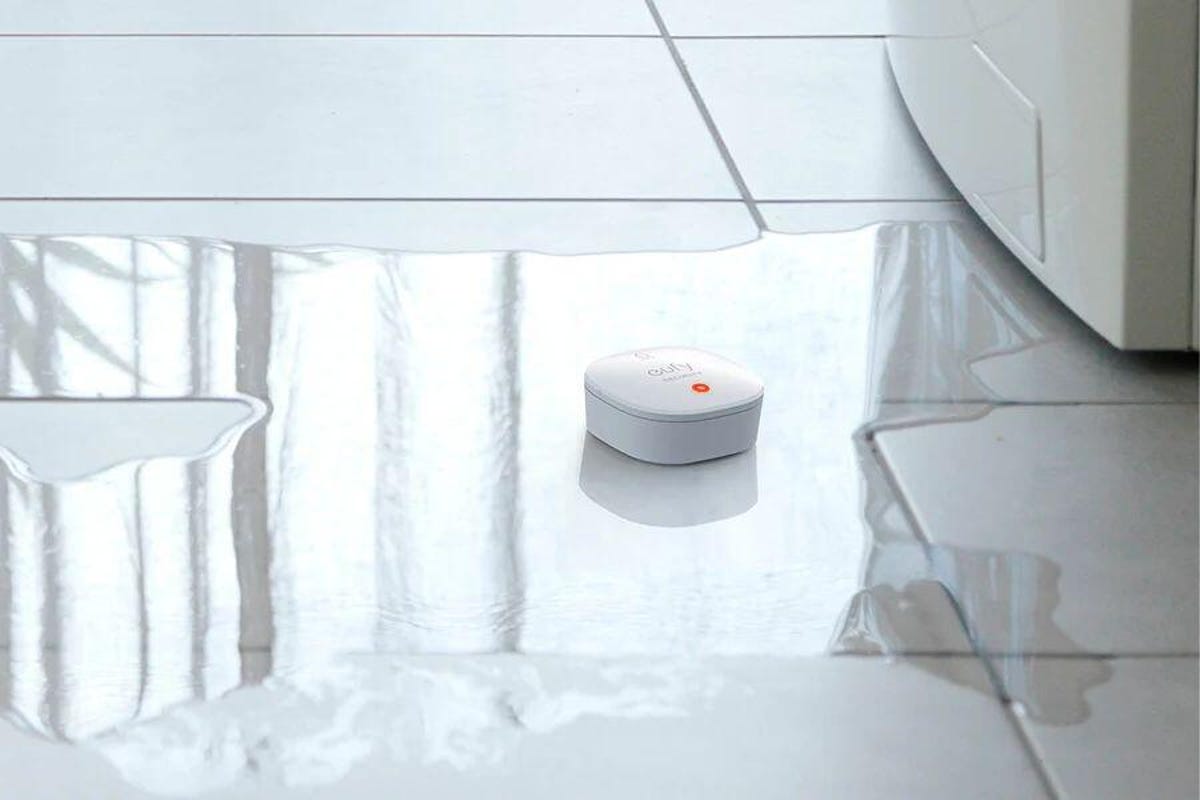
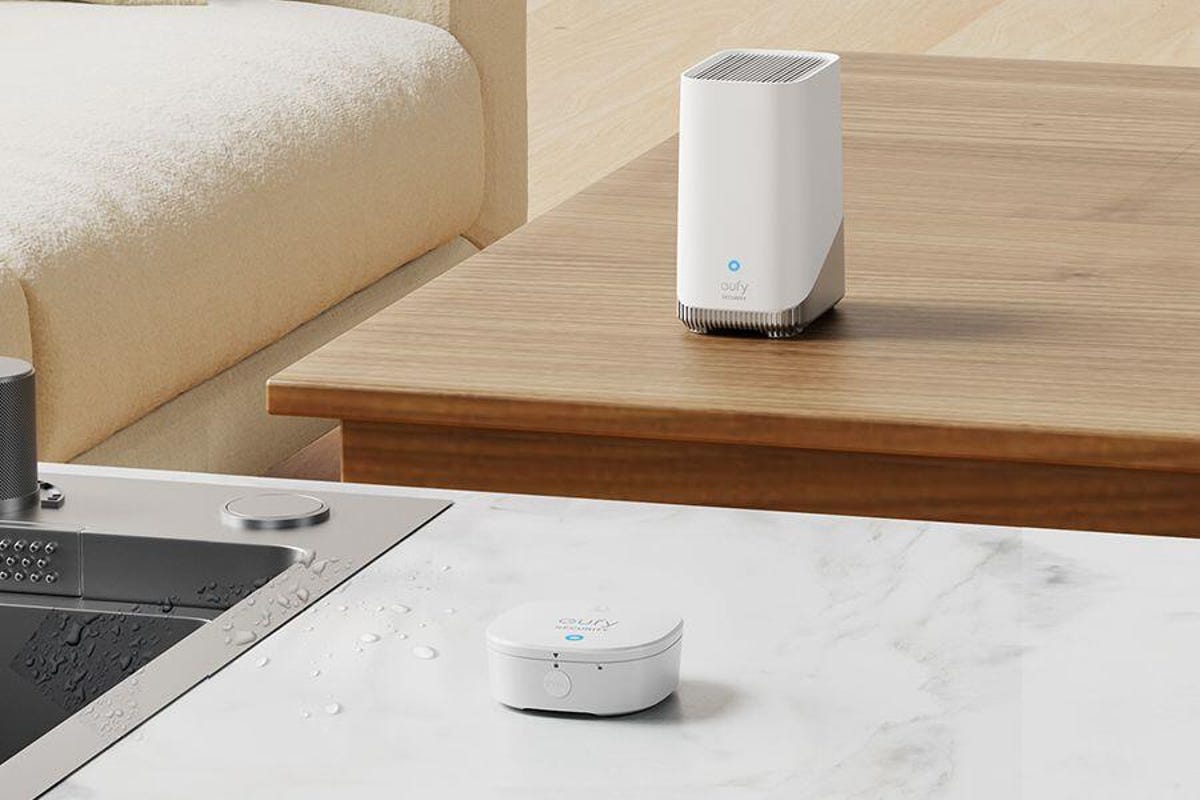
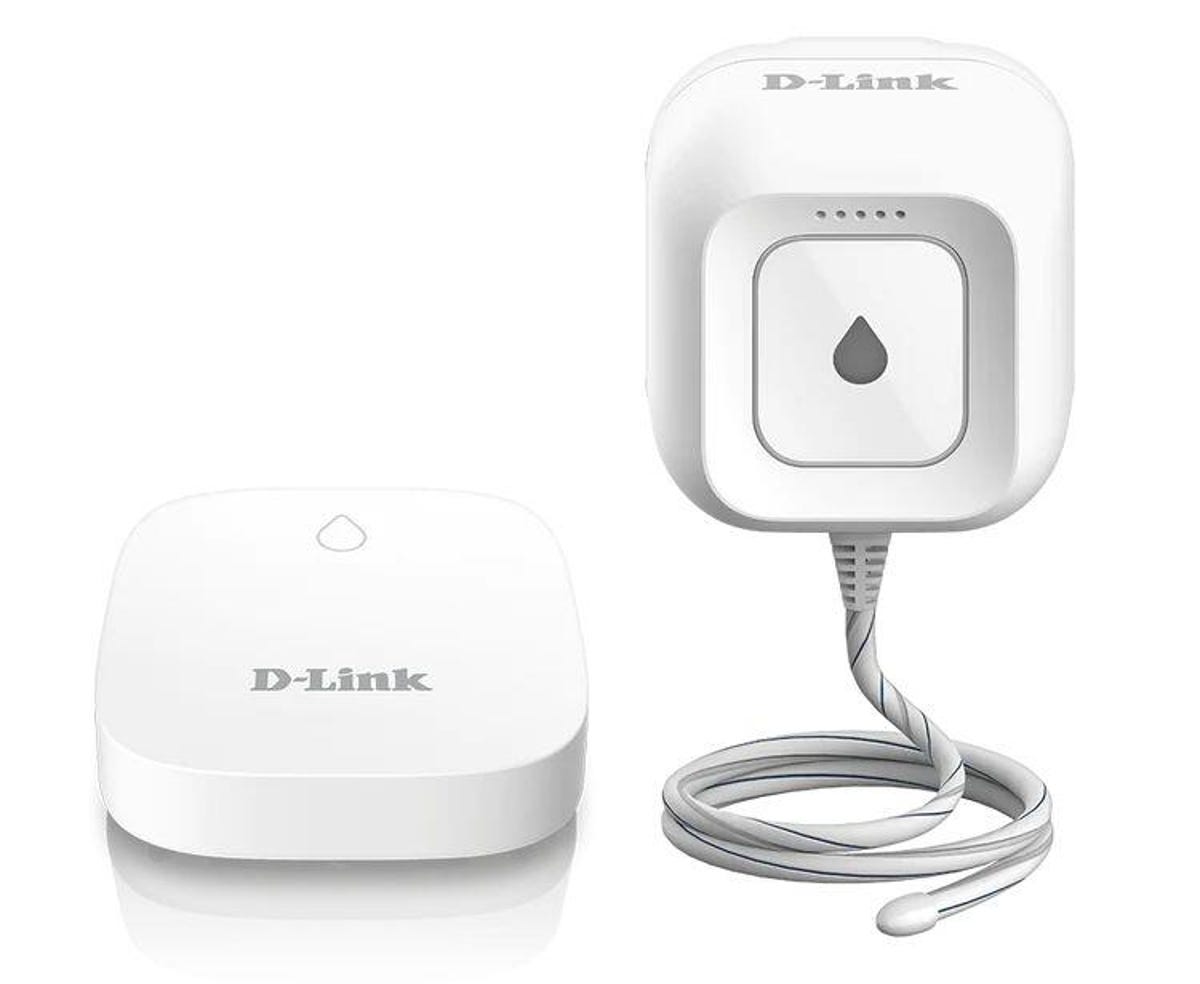
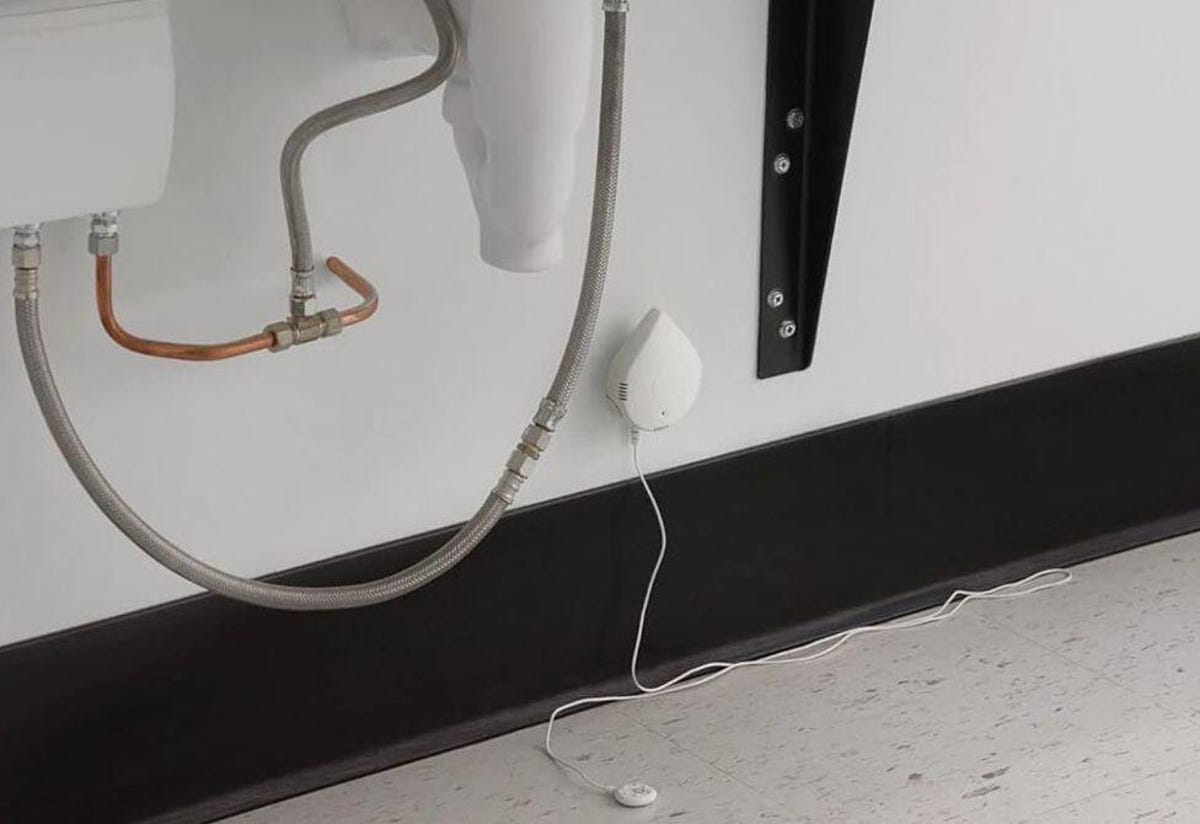
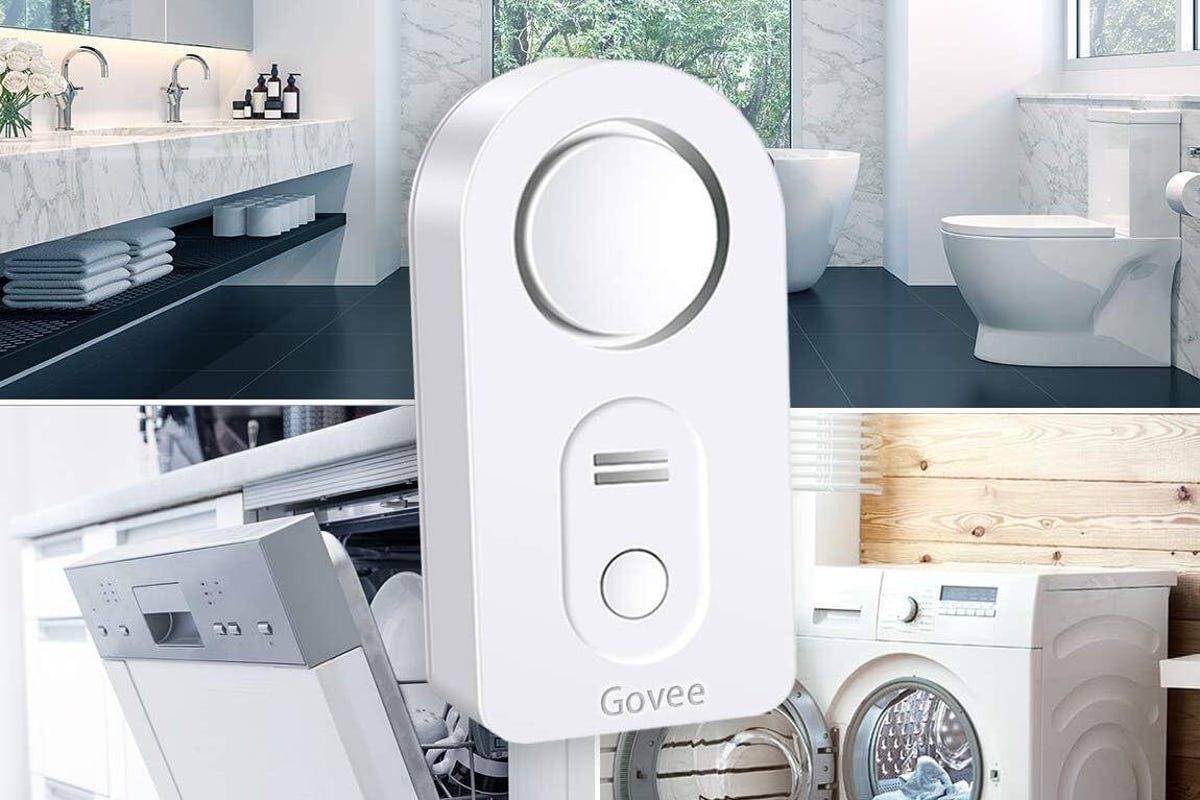
I live in the high desert, where winter brings its share of home problems when temperatures drop below freezing during the cold months. That spells trouble for old pipes, which are at risk of freezing, allowing water to expand inside and burst pipes or break valves, leading to hidden leaks. Thawing those pipes is serious business, and home security systems have a perfectly effective tool to monitor the situation: the humble leak detector, an add-on that far too few homes use.
Of course, freezing temperatures aren’t the only thing that can cause leaks in a home. Heat waves can also expand and damage pipes, or cause old air conditioners to work too hard and leak. Drains get clogged, kitchen sink faucets come loose, and toilets overflow — and that’s just the beginning.
Leak detectors monitor these remote areas with a very simple, effective design. They place an open circuit against the floor. When enough water (conductive, of course) collects beneath them, the electrical circuit is completed, activating the detector, which then sends out an alert or alarm. Not only is this convenient, it also helps prevent some of the most sinister damage in the average home.
read more: 7 Types of Homes You Should Never Buy, According to a Real Estate Professional
Why moisture in your home is so important

Leaks that go undetected can cause major damage and problems such as mold, which are very expensive to fix.
While home disasters like fires make headlines, moisture damage is a much more insidious enemy to the home. And if you own a home, you need to know why.
First, moisture damage is often hidden near pipes, so it can take a while before you notice it’s started, giving leaks plenty of time to set in and spread. That’s bad news for materials that can rot or decompose over time. That goes for not just drywall, carpet, and cabinets, but even structural materials like joists and studs.
Second, when moisture causes rot and softening of materials — especially wood — it attracts nasty pests like subterranean termites or gnawing ants. That requires a costly round of pest control visits in addition to replacing the offending materials.
Third, leaks in dark, protected areas can encourage mold growth. Mold is incredibly damaging to a home: its spores can spread to many places, it can go unnoticed for months, and it can easily contaminate porous materials. Some types of mold can also cause serious health problems. It’s so difficult to remove that there’s a special process called mold remediation that’s expensive, time-consuming, and often requires removing all affected surfaces.
To make matters worse, water damage like this is often not covered by homeowners insurance. Most water damage is considered “preventable” with proper maintenance, so insurers won’t pay out. And mold remediation can be so expensive that insurance companies won’t cover it at all in some areas, even under comprehensive policies.
Where to install a leak detector

Leak detectors, especially battery-powered models, can be placed almost anywhere.
Leak detectors offer great versatility. Some designs require a nearby plug-in hub, but the sensors themselves are usually battery powered and can last for many months on their own. You can place them in a variety of locations. Popular setups include:
- Under the sink in the kitchen and bathroom to catch leaking pipes
- Under pipes in crawl spaces that can freeze
- Behind the washing machine or somewhere nearby in the laundry room
- Behind toilets that can overflow
- Next to boilers
- Behind the dishwasher and refrigerator (depending on your installation)
- Next to a submersible pump that could overflow
- In addition to fountains and other indoor water features
- Behind fish tanks
- Besides AC or dehumidifiers that can overflow
read more: Keep Your Home Dry and Safe: A Guide to Preventing Floods and Water Damage
Our Favorite Home Leak Detectors
If you don’t use a leak detector, it’s worth taking a look at some of my favorite models. If you already have a home security system, start by seeing if your brand sells a leak detector. Most do.
Here is a water leak detector for Abode, one for Vivint systems and a version for SimpliSafe. If you have an Arlo home security system, the universal sensors can also detect leaks. But if you don’t have a system at all, these options are the best standalone choices we’ve found.
Eufy water and freeze sensor

The Eufy leak detector can be combined with the HomeBase, making it easy to place in your home.
Eufy’s is a great solo option for those who don’t have security systems but are willing to buy a Eufy HomeBase hub for app connectivity. It has a two-year battery life and can send notifications straight to your phone no matter where you are, making it a great option for vacations, rental properties, or spending time away from home. Its ability to detect freezing conditions can also help you monitor your crawl spaces or under-sink areas during the winter.
D-Link Water Sensor and Starter Kit

The D-Link kit is a simple and versatile option for installation.
D-Link bundles its tiny plug-in hub (which includes its own additional leak detector dongle) and water sensor device into a package that’s one of the best all-purpose leak detectors we’ve found. It can send app notifications, sound alarms, and flash a warning light to ensure leaks are noticed. The AAA batteries in the sensor model are rated for up to five years.
Moen Flo water leak detector

The Moan Flo sensor requires no battery maintenance.
This detector lowers the price a bit with a wired connection: plug in the hub and use the cable to place the sensor in a nearby location to detect water. That limits its use a bit, but the sensor still has many applications wherever you have an outlet nearby. Other perks like app notifications are included and you don’t have to worry about battery life.
Govee water leak detector 5-pack

Govee’s alarm-based detectors are inexpensive and require no app setup.
If you don’t really care about app notifications and just want a basic detector that will sound an alarm when water starts to build up, this Govee package can cover all the locations in your home for an affordable price. You can adjust the 100-decibel alarm to the volume that works best for you in each location. These sensors will also detect water dripping from above, so don’t hesitate to place them directly underneath suspect pipes.
If you’re looking for more than just leak detectors, check out our guide to smart home basics, see our recommendations for the best refrigerator, and find out which smart locks are best for simple and effective front door security.




